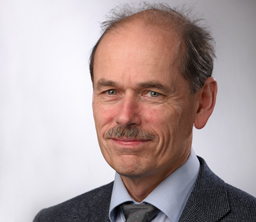Prof. Dr. Carl Georg Hartung
Dr.-Ing., Dipl.-Inf.
Campus Deutz
Betzdorfer Straße 2
50679 Köln
Raum ZW 6-8
Postanschrift
+49 221-8275-2487
georg.hartung@th-koeln.de
Sprechstunden
Online-Sprechstunde
, Raum ZOOM Meeting Meeting-ID: 948 9772 0343, Kenncode: 876923
Da ich seit dem 31.7.2020 in Ruhestand bin, garantiere ich nicht dafür, dass ich jede Woche zu dieser Zeit am Rechner sitze. Bitte buchen Sie daher möglichst einen Termin im Ilias-Lehrinformationssystem hier:
https://ilu.th-koeln.de/ilias.php?baseClass=ilrepositorygui&cmd=render&ref_id=147200
Funktionen
- Lehrbeauftragter
Lehrgebiete
- Technische Informatik Digitale und eingebettete Systeme
- Parallele Programmiersprachen und Rechnerarchitekturen
- Alternative Rechnerarchitekturen und Programmiersprachen
Forschungsgebiete
-
Internet of Things Sichere und vertrauenswürdige Kommunikation zwischen Geräten (Sensoren/Aktoren) und Cloud-DienstenForschungsprojekt SensorCloud (Prof. Dr. G. Büchel, Prof. Dr. G. Hartung, Prof. Dr. L. Thieling)
-
Testautomatisierung Automatisierter Test von digitalen Hardware- und Softwaresystemen
Projekte / Kooperationen
-
Testautomat
Entwicklung eines universellen Testautomaten für Digitale Systeme in Kooperation mit einem lokalen Industrieunternehmen
Publikationen
Beitrag zu Tagungsband
-
Testbed for the Sensor Cloud
Gregor Büchel, Henning Budde, Maria Bunina, Sven Elbrandt, Martin Fehre, Georg Hartung, Andreas Lockermann, Tobias Krawutschke, Daniel Scholz, Andre Schüer, Lothar Thieling, Trusted Cloud Computing, LNCS, Springer Verlag, Hg.: Helmut Krcmar, Ralf Reussner, Bernhard Rumpe
SensorCloud is a cooperative project of research institutes and companies in Germany which is aimed at using secure cloud technologies to connect sensors and actors from industry and private homes to the cloud. This article focuses on the construction of a testbed for SensorCloud with the application ’smart private home’. Newly developed sensors e.g. a vision sensor form the base of a system which is connected to the SensorCloud through a Location master gateway which combines several functions namely secure communication with the cloud using the SensorCloud protocol, interworking of different sensor technologies based on sen- sor ontologies. Special attention was given to the construction of a federated data base consisting of local components and Cloud components. The article presents the system built so far and shows some possible applications
Tagungsbeitrag
-
Test automation for reengineered modules using test description language and FPGA
T. Krawutschke, G. Hartung, N. Kopshoff, M. Schulze, G.B. Faluwoye, C. Hoffman, Embedded World 2018 Conference, Hg.: Verlag Markt und Technik
Reverse engineering is a very important technique in systems where the overall system lifetime is much longer than the lifetime of its electronic and digital components. Obsolete components (e.g. processors from the 1970s, digital logic components) are replaced with FPGAs. The systematic test of these reverse engineered devices is subject of a project carried out by scientists of TH Köln and engineers of the company OTL specialized in reverse engineering. -
SensorCloud: a Flexible and Trustworthy Approach for Implementing the Internet of Things
Georg Hartung, Lothar Thieling, Gregor Büchel, Thomas Partsch, Tobias Krawutschke, Andre Schüer, Henning Budde, Daniel Scholz, Jonas Siewert, Embedded World 2015 Conference, Hg.: Verlag Markt und Technik
The research project SensorCloud explores mechanisms by which sensors and actors can trustfully be integrated into the Cloud. Due to sociological investigations, a central feature of the SensorCloud protocol is to preserve data ownership. Thus, SensorCloud has defined a special protocol for S/A data based on the ideas of authentification, authorisation, encryption security and extendability. The SensorCloud protocol is based on a JSON configuration language using SenML vocabulary and extends the data representation with "if..then" rules which allow defining complex actor behavior on sensor events. To demonstrate these ideas the Cologne SensorCloud group has developed a SensorCloud demonstrator which integrates S/A equipment from different suppliers using different local protocols as well as 'virtual S/A' (e.g. a weather forecasting service or a group of actors). Its location master gateway realizes the trust point where data from the location is translated into its SensorCloud representation. It is built using open software (Linux etc.) as far as possible. A newly developed VisionSensor shows efficient usage of video data in the SensorCloud e.g. efficient monitoring in which a user may define areas for monitoring in the camera's eyefield. Only on relevant changes in these areas highly compressed images are transferred into the cloud using the SensorCloud protocol. Additionally, our demonstrator exploits the use of a federated data base system (FDBS) as data storage in the cloud.
